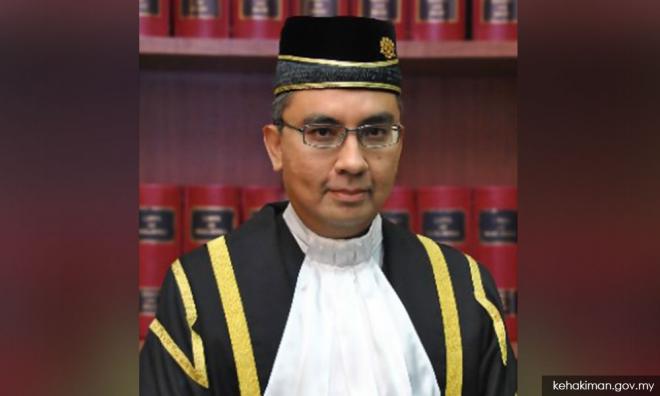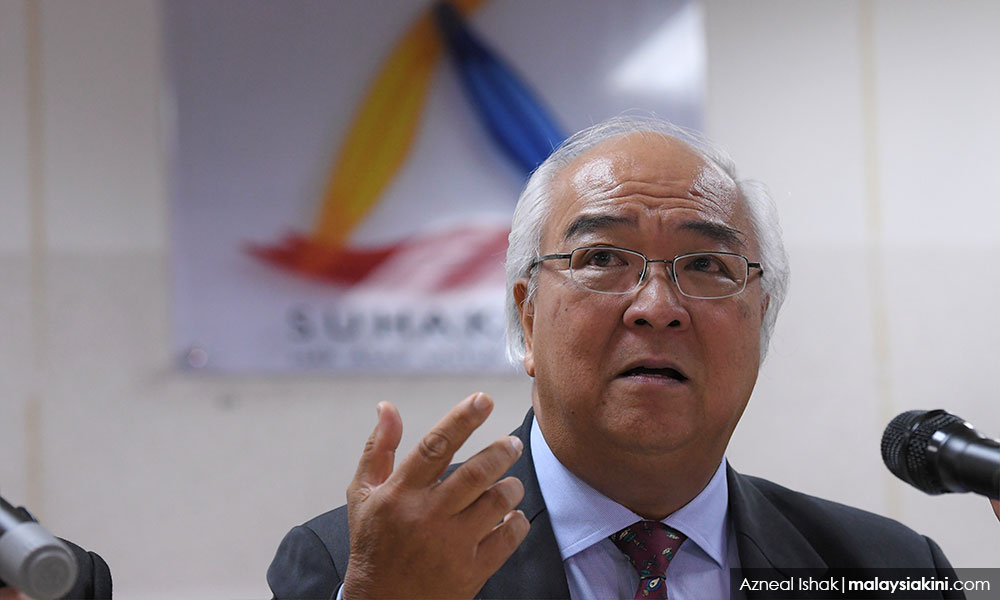
Rome was not built in a day but we have waited 32 years. From 1988, the country has suffered from a massive public trust deficit with the judiciary.
A series of dramatic events - sacking and suspending of Supreme Court judges, constitutional amendments to reduce judicial power and active political interference in judicial appointments - have made it hard for Malaysians to see the judiciary as a body of independence and integrity.
We have longed for this, and we are getting close.
Before 1988, our courts were well respected and scandals and allegations of impropriety were little to none. The judiciary received its first onslaught when then prime minister Dr Mahathir Mohamad was dissatisfied with the judges’ decisions against his government. He orchestrated heavy-handed tactics against the judiciary, which culminated in a constitutional crisis.
Five judges at the highest court, including the then Lord president Salleh Abas, were unceremoniously suspended from the bench, following a highly dubious disciplinary proceeding. Salleh, together with Wan Sulaiman and George Seah, were permanently sacked.
The Constitution was also amended (Article 121 and Article 121[1A]) and this effectively shrunk judicial power, striking at the heart of the century-old doctrine of separation of powers. Even the nation's first prime minister Tunku Abdul Rahman Putra was "disgusted" by Mahathir’s actions.
The healing that needs more healing
It took the government 20 years to admit that this episode was one the judiciary "never recovered from" and that the "serious transgressions" committed in the past must be acknowledged. Abdullah Ahmad Badawi's government put forth ex gratia goodwill payment to the sacked and suspended judges to “mend what had been [done]”.
The judiciary is conscious of this. That is why every newly appointed chief justice would emphasise the principles of separation of powers and judicial independence. They understand the heavy obligation to protect the institution from public criticism and distrust. Optics are crucial in the area of justice. Justice, after all, must be seen to be done.

Former Court of Appeal judge Mah Weng Kwai (above) said the dark days of 1988 have slowly seen a breath of fresh air. A committed Chief Justice who cares about independence and the quality of work is vital. There is “a little more independence” and “definitely less political interference” like we had years ago.
But that is not enough. Public trust in the judiciary faltered because of a dramatically negative event in 1988, and it takes a dramatically positive event to restore the people’s trust in it. Scandals and allegations of corruption, backroom dealings, and dubious court decisions made the stain of 1988 even stickier than before.
The only time the public pays attention to the judiciary is in cases involving high-profile politicians and during judges’ appointments. It does not help when the memory of Anwar Ibrahim’s 2015 conviction (where Anwar had called the Federal Court judges "great cowards of humanity" who were “partners in crime for the murder of judicial independence and integrity”) and Najib’s highly extraordinary extension of chief justice tenure still lingers.
A dramatically positive event
It takes a judgment like that of Mohd Nazlan Mohd Ghazali’s in former prime minister Najib Abdul Razak’s SRC verdict that makes us trust the judiciary again.
After 100 days of listening to a total of 57 prosecution witnesses and 19 defence witnesses on a case about Najib’s role in approving RM4 billion worth of retirement fund (KWAP) loans to SRC International, judge Nazlan took two hours to deliver what is now a landmark judgment on the duty of public officials.

Nazlan found Najib guilty of abuse of power, criminal breach of trust and money laundering and sentenced him to 12 years in jail and RM210 million fine.
In his judgment, he connected the facts of the case to the meaning of “gratification” under Section 23 of the MACC Act. The extraordinary sum of RM42 million was a form of gratification because the money received from 2014 to 2015 was something Najib approved in the federal cabinet and directly caused him to have access to greater funds in the company. The approval by the cabinet, chaired by Najib, benefited the company that was controlled by Najib.
Najib’s position as prime minister and finance minister also acted as a form of influence that is considered “sufficiently predominant” on the Treasury secretary-general and KWAP CEO.
Further, Nazlan said it was curious that Najib was not concerned with how the RM4 billion was used - whether it was to promote national energy strategic initiatives to Malaysian’s benefit. Even when the Swiss authorities froze the funds, Najib still did not care. Nazlan thinks that Najib’s lack of concern was more consistent with a person who had made unlawful transfers and who did not want to be found out.
Do not rob this from us
On the oft-repeated claim that the money was a donation from Saudi Arabia’s King Abdullah, Nazlan said this was "nothing but an implausible concoction".
Extracts of the judgment were written in English. And it has contained our long-held logic and reason, our unwavering search for the truth amidst the smoke and mirrors - our cherished hopes and dreams.
Najib’s lawyers will file an appeal and it will take almost a year for the legal process to be completed. Najib may win the appeal and like our small victory on May 9, 2018, it may be reversed. The virus may continue to plague our country, politicians may continue to grab for power and betray the public trust, and the economic recession may continue biting into our savings.
But do not rob us of July 28. It made us believe in the courage of the few - the truthseekers, the freedom fighters, the idealists, the rebels, the dreamers. It made us believe in a hopeful future while living in a room of dark history.
Because, in that small moment, we had justice.
JAMES CHAI is a legal consultant and researcher working for Invoke, among others. He also blogs at jameschai.com.my. You may reach him at jameschai.mpuk@gmail.com. - Mkini



No comments:
Post a Comment
Note: Only a member of this blog may post a comment.